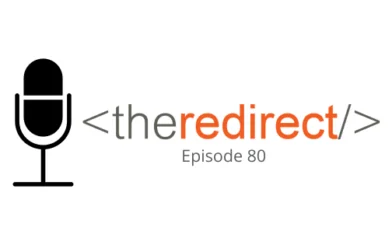Episode 3 / May 26, 2017
Every week, the BlackTruck Media + Marketing team gathers around a microphone to discuss recent search industry insights and news. We also share relevant actions our listeners can take to improve their digital marketing.
In Episode 3 of The Redirect Podcast, the BlackTruck team recaps The Inbounder NYC, with great insights on machine learning and the future of search. Also: powering local SEO efforts with reviews and location data, and the announcement of Google Attribution.
The Inbounder
Jason just returned from attending the Inbounder World Tour in NYC on May 22. The conference focused much more on machine learning and “the bots,” than on mobile first like we have seen for the past 18 months.
Mike King (@ipullrank) talked in-depth on AI and machine learning, with a good reminder that, in fact, AI is NOT machine learning. There are two basic types of machine learning to keep in mind: supervised and unsupervised. Many of your applications like Pandora and even Spotify, and to some degree, Instagram, etc. are supervised. This means they have some data sets they start with, then also have interaction from the users for the “system” to learn from.
Many brands are incorporating machine learning through chatbots for customer service or FAQs. The application is still relatively new, with potential for the robots to “screw up” while learning. Are you prepared for when that happens? If you use or plan to use chatbots or other instances of machine learning for your digital communications strategy, you should also have a plan in place for addressing any potential fallout.
Takeaway: The bots are taking over (sort of). And the industry is moving past discussion of mobile first – because mobile first should be old news for marketers at this point. If your site isn’t mobile-friendly, you’re behind.
Location Data and Reviews
Miriam Ellis wrote a great article over at Moz about the “1-2 punch of local SEO.” We know that reviews themselves may not necessarily influence search rankings (though Miriam notes that things may be moving in this direction). She writes that you can be found online because of the location data corresponding to your business, but you get chosen because of the reviews associated with your online presence.
Reviews also create an opportunity for local businesses to compete with larger businesses by using reviews as a resource for quality control. (Larger businesses might find it difficult to monitor and make changes in response to local reviews.)
Takeaway: Make sure your local data is accurate and uniform across all directories and websites, and leverage customer reviews to help your business compete with the big dogs when it comes to being chosen.
Google Attribution
Google announced many exciting new tools during the Marketing Next keynote on May 23. Among them: Google Attribution.
How do marketers know if their marketing efforts on different channels are contributing to a purchase when they’re working with a last-click attribution model? Google is solving the attribution problem through Google Attribution, which will measure the impact of each marketing touch point across devices and channels and provide a single view of the path toward purchase. Attribution is in Beta and will roll out to new customers over the coming months. See this portion of the Google keynote here, beginning at 32:20.
Takeaway: Keep an eye out for Google Attribution as it becomes more widely available. It will help marketers make more informed decisions based on more accurate data.
Ideal Word Count for Page Text
In a SEMrush article discussing signals of a quality webpage, Dan Taylor challenged the concept of needing to have at least 500 words on a page for the content to have SEO value. He counters that a page should include as much information as necessary to sufficiently answer a user query.
We’ll add that regardless of the word count, the content on the page still needs to be well-structured and accessible for people who land on the page. If you sufficiently answer a customer’s query in 300 words, but it’s a disorganized mass of words, you’re doing it wrong.
Takeaway: Write for humans. Satisfactorily answering relevant search queries is more valuable than fluffing up your page text to meet an ideal word count.
Thanks for tuning in! Subscribe on Soundcloud, iTunes, or Stitcher to catch future episodes of The Redirect Podcast.




